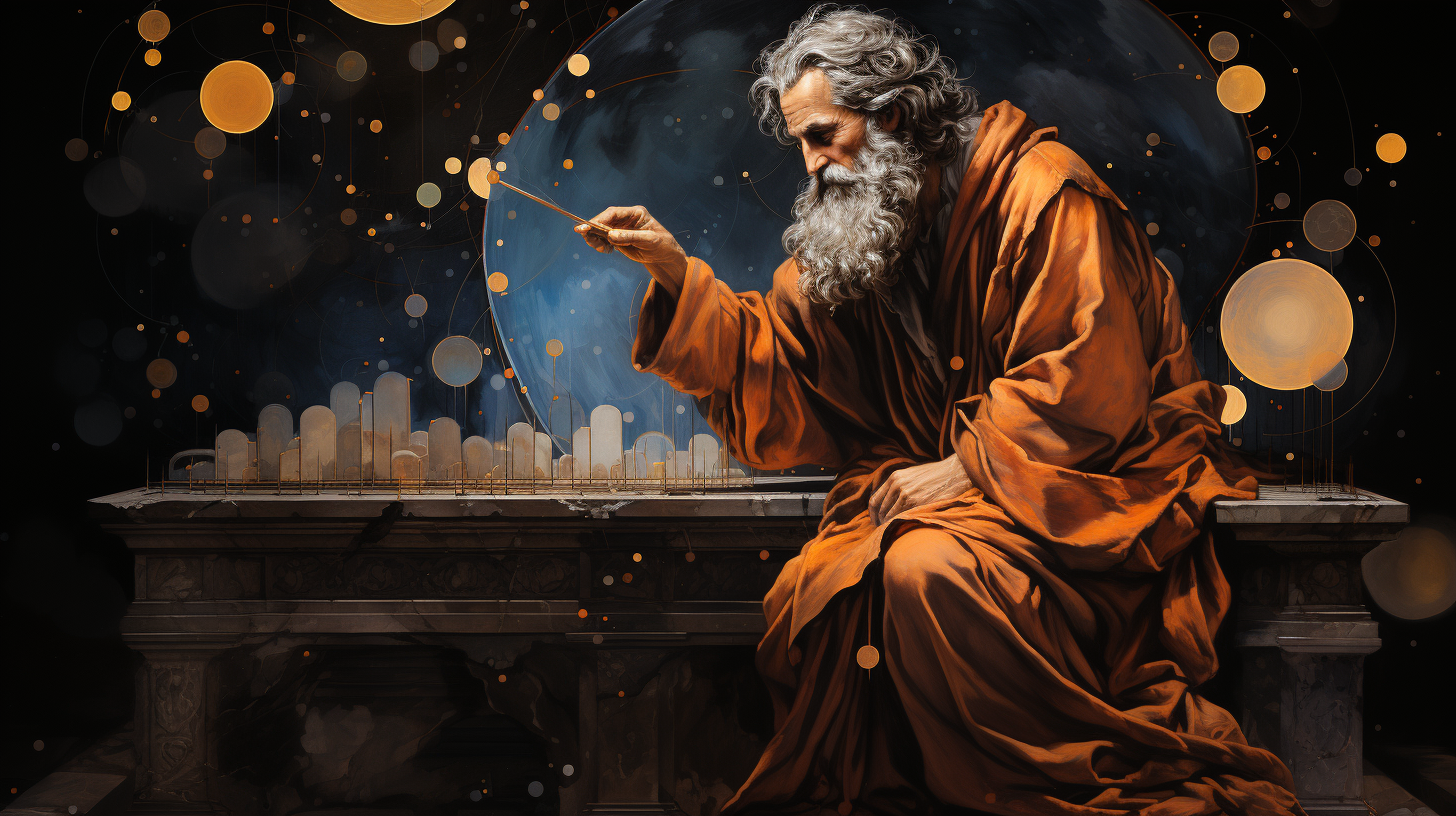Foreword
Through the annals of time, there emerge personalities whose influence transcends generations, illuminating paths to wisdom that endure through the ages. One such figure is Pythagoras, the illustrious Greek mathematician and philosopher of the 6th century BC. His sojourn into the esoteric realms of Egypt not only expanded his own insights but also left an indelible mark on the fabric of human knowledge.
This narrative delves into the realm of Pythagoras, unveiling the symbiotic relationship he discovered between mathematics and music, leading to a theory of cosmic harmony that continues to resonate in contemporary times.
A Passage Through Egypt with Pythagoras
In the year 535 BC, Pythagoras embarked on a transformative quest, departing from his homeland of Samos, Greece, to immerse himself in the mystique of Egypt. There, he was initiated into the enigmatic teachings of Egyptian priesthoods, clandestine societies, and undisclosed orders. Within the sacred chambers, Pythagoras unearthed insights that were remarkably progressive for his era.

The Harmonic Essence of Mathematics
One serendipitous day, Pythagoras chanced upon a blacksmith’s forge. The rhythmic symphony of hammer striking metal captivated him, planting a unique idea in his mind’s garden. The resonance produced by the blacksmith’s craft intrigued him, leading him to contemplate the application of mathematics to understand these harmonies.
Pythagoras intuited a profound mathematical connection between the tones and notes elicited by the striking of metal. It was as though the cosmos conversed through mathematical dialect. He discerned that these sonorous vibrations could be mathematically defined by the ratios and proportions between various musical notes.
The Musical Mathematics: Genesis of the Western Scale
Undertaking a momentous endeavor, Pythagoras endeavored to bridge the domains of geometry and mathematics with the sphere of music. Through experimentation, he unearthed that by securing a string at fractional ratios, he could produce harmonious melodies. These ratios birthed intervals like thirds, fifths, fourths, and octaves, laying the groundwork for what we now recognize as the Western musical scale.
This ingenious innovation forever transformed the landscape of music, positioning Pythagoras as a heralded progenitor of musical theory. His revelations unlocked a realm of harmonic elegance, presenting a universal language that transcended geographical and temporal barriers.
Harmony of the Cosmos: Pythagoras’ Celestial Orchestration
Unsatisfied with confining his contemplations to earthly realms, Pythagoras cast his gaze upon the night sky, engrossed by the celestial bodies. Guided by his mathematical acumen, he propounded a bold conjecture: positing that the entirety of the cosmos resonated in perpetual harmony, akin to a cosmic orchestra.
In Pythagoras’ vision, the universe resembled an ancient lyre, akin to a modern harp. Just as each string on a lyre vibrates at a unique frequency, he theorized that each celestial body emitted its distinct sound, composing what he eloquently termed the “music of the spheres.”
Echoes in Modern Science
Pythagoras’ contemplations on the harmonious fabric of the cosmos may appear quaint by present-day scientific standards. Nevertheless, the parallels between his concepts and contemporary astrophysics are striking. Modern science corroborates the emission of electromagnetic radiation by celestial entities, each resonating with a specific frequency. While Pythagoras’ cosmic symphony may not align precisely with reality, the foundational idea of a harmonious universe continues to reverberate through our modern cosmological understanding.
Audiovisual Presentation:
Epilogue
Within the crucible of ancient Egypt, Pythagoras forged a profound bond between mathematics and sound, leaving an enduring impression on the realm of music and our comprehension of universal harmony. His visionary concepts and unrelenting curiosity continue to encourage exploration of the intricate interplay between mathematics, music, and the celestial expanse. The legacy of Pythagoras stands as a tribute to the enduring potency of human imagination and the limitless realms of knowledge awaiting those who dare to tune into the mathematical melody of the cosmos.
